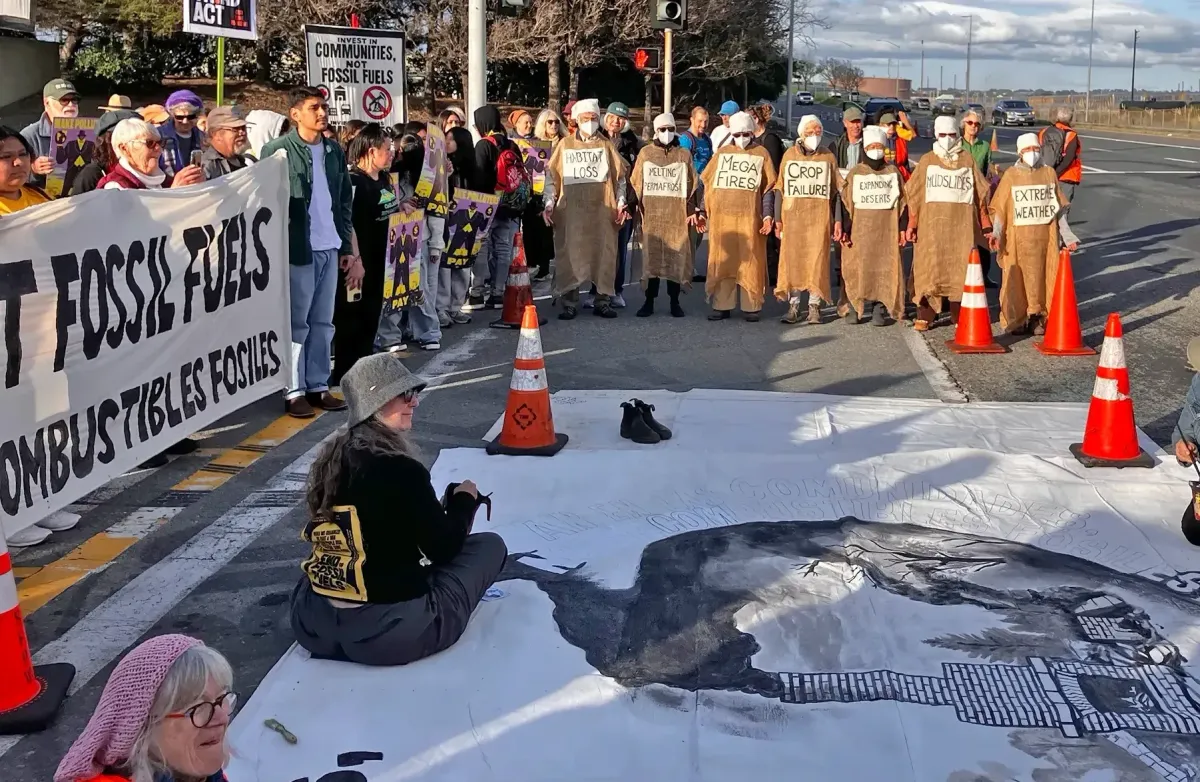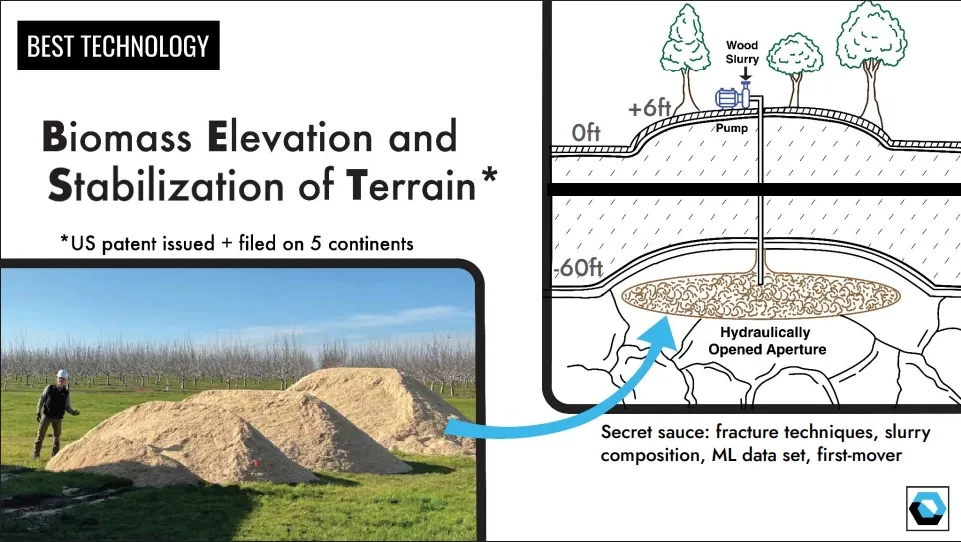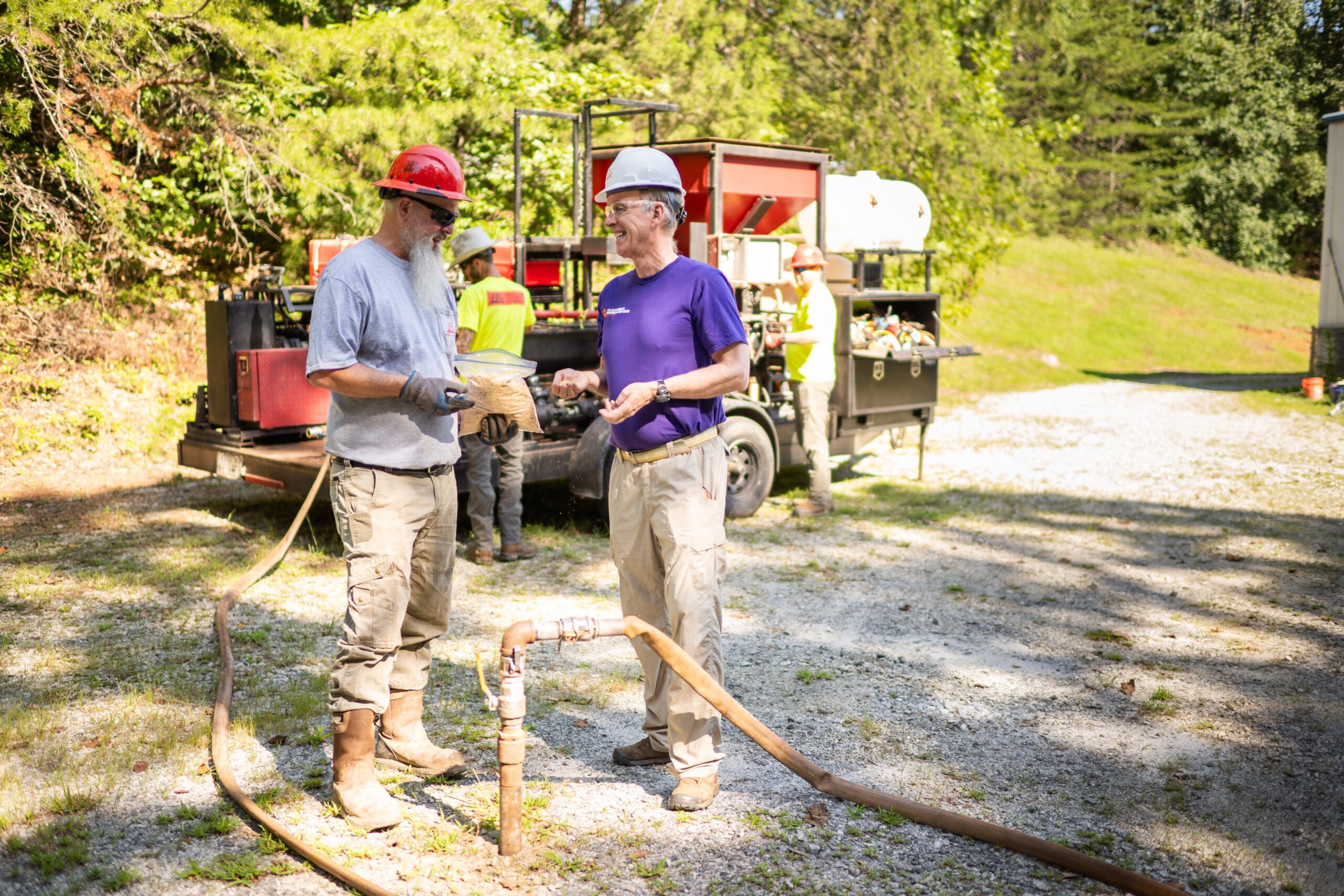

The Richmond City Council is set to cancel two meetings during the holidays, take a stand on climate legislation, and approve several appointments to the city’s boards and commissions on Tuesday, October 28. The council has one item not on the consent calendar, a presentation from a company that injects wood pulp into the ground to raise the ground surface to prevent flooding.
A climate bill would hit gas giants where it hurts
The Richmond City Council is expected to adopt a resolution Tuesday in support of the Polluters Pay Climate Superfund Act of 2025. This statewide proposal would require large fossil fuel companies to contribute to the cost of climate change recovery and adaptation in California.
The measure, introduced by Councilmember Claudia Jimenez, supports Senate Bill 684 and Assembly Bill 1243, which direct the California Environmental Protection Agency to study the costs of climate-related damage in the state and to assess fees on major fossil fuel producers based on their share of emissions from 1990 to 2024.
According to the item’s agenda report, California communities are facing accelerating impacts from the climate crisis, including wildfires, floods, droughts, sea level rise, and extreme heat. The report cites recent events such as the January 2025 firestorms in Los Angeles and Ventura counties, which caused an estimated $250 billion in damage and 30 deaths, and record flooding in 2022 and 2023 that caused $4.6 billion in losses. The California Natural Resources Agency projects that statewide climate-related costs could reach at least $113 billion per year by 2050.
According to a fact sheet provided by the Center for Biological Diversity, burning coal, oil, and gas accounts for 90 percent of global carbon dioxide emissions, and 90 of the world’s largest fossil fuel companies are responsible for about two-thirds of human-caused carbon dioxide and methane emissions. The legislation would require those companies to pay into a state-managed Climate Superfund, with at least 40 percent of funds directed toward disadvantaged communities.
The council report states that supporting the legislation would align with Richmond’s environmental justice and community health goals outlined in the city’s Climate Action Plan.

A pitch on tree-based flood defense
The Richmond City Council is set to hear a presentation from a company proposing solutions for sea-level rise. The company’s technology involves injecting wood pulp deep underground to elevate and stabilize coastal communities.
Vice Mayor Cesar Zepeda requested the presentation from Levitree, a company that says it can address coastal flooding and groundwater infiltration. The item was originally scheduled for July 1 but was continued to the October meeting.
Levitree describes the process as a cost-effective and sustainable way to elevate land mass without disrupting surface infrastructure. The technology uses specialized equipment to pump a wood-based slurry deep into the earth, stabilizing the soil at depths of around 60 feet. The process is reportedly controlled via iPad, allowing for precise, localized elevation.
This approach is similar to academic research performed at Clemson University under the name Carbon SIRGE (Solid Injection to Raise Ground Elevation). A 2023 field study, led by Clemson researchers, demonstrated the technique’s feasibility by injecting a sawdust slurry underground.
 Clemson NewsPaul Alongi
Clemson NewsPaul Alongi
The experiment successfully showed that repeated injections could sequester carbon by burying wood under anoxic conditions and lift the ground surface by millimeters per day.
According to materials submitted to the council, Levitree’s approach involves “fracture techniques” and proprietary slurry composition, paired with machine learning data analysis. The company describes these methods as its “secret sauce” and claims to be a “first-mover” in the field.
The company has conducted pilot testing in Wilton, a small town in Sacramento County.
City documents identify several Richmond neighborhoods as potential applications for the technology, including Parchester Village, Marina Bay, and Point Richmond, areas vulnerable to flooding as sea levels rise.
The presentation carries no financial commitment for the city. Council members will only receive information, with no action required.
Richmond, like other shoreline cities around San Francisco Bay, faces increasing flood risks from climate change. Traditional solutions have included levees, pump stations, and other hard infrastructure.
Canceling meetings
The council will also vote on canceling its November 25 and December 23 meetings to accommodate the winter holidays. Meetings will continue on November 4, November 18, December 2, December 16, and January 6 as part of the council’s adjusted holiday schedule.
The mayor's slate of appointments to arts, economic development, and oversight commissions
Mayor Eduardo Martinez is recommending several appointments and reappointments to city commissions. Hercules resident Kelly Robinson would join the Arts and Culture Commission, which advises the city on public art projects, cultural programming, and policies that support Richmond’s creative economy.
The mayor is also reappointing Edward “Don” Thompson, Diana Wear, and Michael Gliksohn to the Economic Development Commission, which works with businesses, community organizations, and city staff to promote local job growth and guide strategies for commercial revitalization. Each would serve through March 2028.
Several new and returning members are also slated for the Community Crisis Response Program Advisory Board, which helps guide the city’s non-police emergency response initiative focused on mental health, substance use, and crisis intervention. Alice LoCicero and Keri Sullivan would be reappointed to terms ending in 2026, while Amber Hatfield and Hope Dixon would be newly appointed to terms through 2028.
James Davis would be appointed to the Historic Preservation Commission, which reviews applications for changes to historic structures and advises on policies that protect Richmond’s architectural and cultural heritage.
Danyell Manefee would join the Community Police Review Commission, an independent civilian body that investigates allegations of police misconduct and recommends policy reforms to improve accountability and trust between officers and residents.
Finally, Rauly Butler would be appointed to the Workforce Development Board, a regional body that connects employers with job seekers and oversees federally funded programs aimed at expanding training and employment opportunities for Richmond residents.
Public Works Department
In other business, the Public Works Department is seeking approval for an agreement with RailPros Field Services, Inc., a consultant for the Richmond Pacific Railroad Corporation, to provide engineering services for Phase 2 of the Richmond Wellness Trail. The Transformative Climate Communities-funded project, seeks to create a safe, connected walking and biking route from downtown to the shoreline while incorporating green infrastructure and public art.
On the closed session agenda, the Richmond City Council is set to discuss terms for a potential real estate agreement involving 1414 Harbor Way South, the site of the Craneway Pavilion. City Attorney Dave Aleshire and Finance Director Emily Combs represented the city in negotiations with Orton Entertainment, LLC. The discussion centered on the price and payment terms.
SUPPORT LOCAL JOURNALISM - SUBSCRIBE TODAY!
Grandview Independent needs your financial support to continue delivering the news that matters to our community. Quality journalism costs money, and we can't do it without readers like you.
SUBSCRIBE NOW and get:
• Unlimited access to all articles
• Newsletters with exclusive content
• The satisfaction of backing independent local news that serves your community
CLICK HERE TO SUBSCRIBE - Starting at just $10/month
FOLLOW US FOR BREAKING NEWS:
• Twitter: @GrandviewIndy
• Instagram: @GrandviewIndependent
• Facebook: @Grandview Independent
Copyright © 2025 Grandview Independent, all rights reserved.
